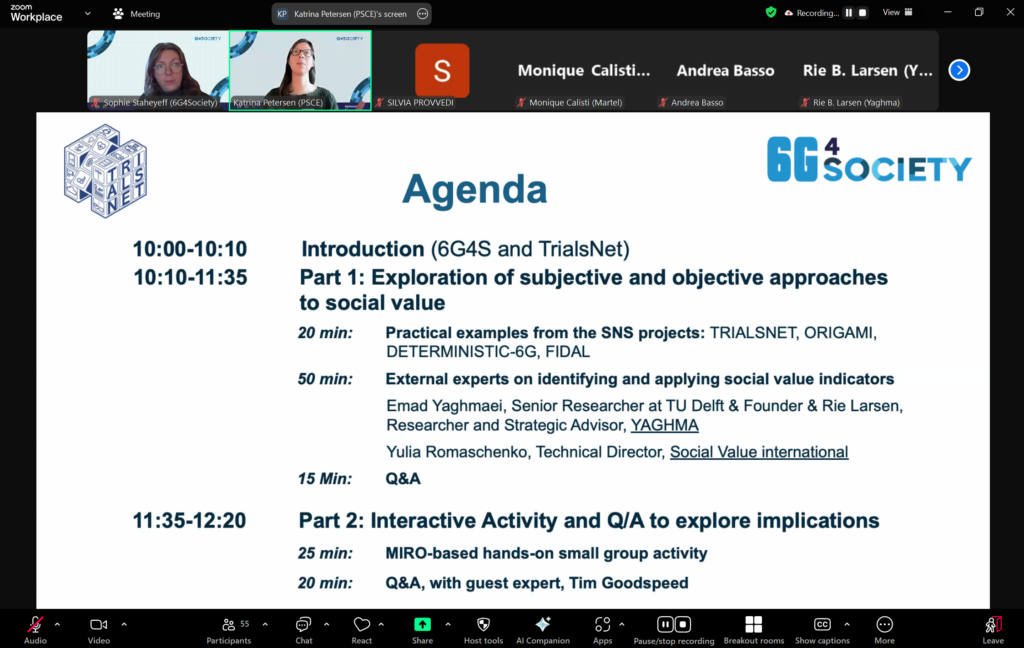
On 6 February 2025, 6G4Society and TrialsNet co-hosted a workshop “Objective and Subjective Approaches to Key Value Indicators – Sharing methodological approaches and evaluation instruments” bringing together SNS JU projects and external experts to explore objective and subjective approaches to Key Value Indicators (KVIs). The aim was to present methods that can be used to effectively measure social and sustainability values in 6G research. The workshop also attempted to dive into methodologies that go beyond traditional KPIs to capture these critical dimensions. Presenters highlighted specific methodologies that are being applied within the SNS projects, while external experts brought real-world examples and strategies to assess non-technical value outcomes.
A few key trends emerging from the presentations related to KVIs and how they should be approached were identified:
In conclusion, the joint 6G4Society and TrialsNet workshop was a great success, sparking valuable discussions on Key Value Indicators, methodological approaches and evaluation instruments.
